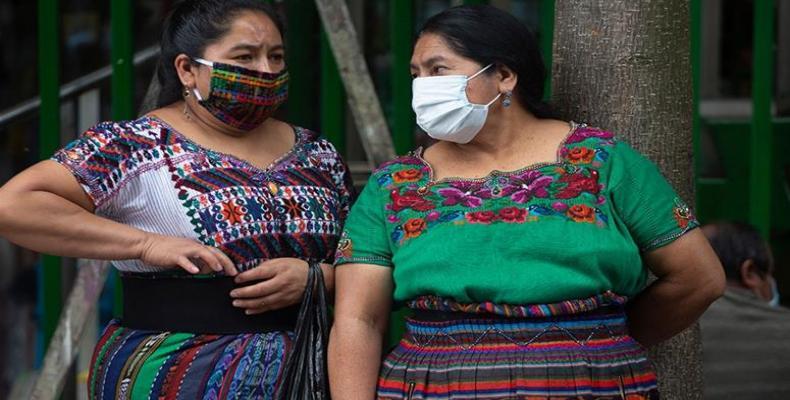Guatemala City, April 17 (RHC)-- In normal circumstances, Guatemala's healthcare system in rural areas is "appalling", said a doctor in the Guatemalan Department of Alta Verapaz, but in the time of the coronavirus pandemic, it is even worse.
Rural and Indigenous communities across Guatemala are increasingly concerned about the spread of coronavirus, questioning whether the country's already fragile healthcare system could adequately respond.
"The Guatemalan health care system is not prepared to attend to a pandemic of this magnitude," said Diego Petzey, currently a community leader in Santiago Atitlan, another rural area.
Most of Guatemala's 196 confirmed COVID-19 cases and five deaths have appeared in the country's urban centres, including Guatemala City and Quetzaltenango, but earlier this month, the government reported the first case of community transmission in the Maya Kaqchikel town of Patzun, some 80km (50 miles) west of Guatemala City.
"There is a false sense of confidence that the virus will only affect urban areas," said Lucrecia Hernandez Mack, the former health minister from 2016 to 2017 and current congressional representative with the centrist Semilla party.
Guatemala remains a largely rural country, with 46 percent of the population living in rural communities, according to the 2018 census. The majority of these rural residents are members of the Indigenous Xinca, Garifuna and 22 different Maya groups.
In rural areas, the government launched a prevention campaign about washing hands and social distancing in Indigenous languages on local radio and television. But both Hernandez Mack and Petzey said it is not enough, saying many communities still lack daily information in their languages about the crisis.
"They have not taken sufficient necessary measures to attend the Indigenous populations that are more dispersed outside urban centres," Hernandez Mack said.


